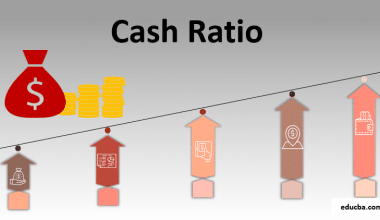Child and dependent care is a vital issue and a significant financial burden for many American households. Millions of individuals rely on child care to work, while others care for elderly parents or disabled family members. If you care for a child or adult who is unable to care for themselves, stays in your home for at least eight hours per day, and may be claimed as a dependent on your income taxes, you may be eligible for dependent care through a flexible spending account (FSA). Individuals can use these FSA accounts to pay for eligible child and dependent care expenses while reducing their taxable income. Here’s all you need to know about dependent care FSA and the 2023 limits.
What Is a Dependent Care FSA?
A dependent care FSA is a tax-favored account that can be used to reimburse out-of-pocket dependent care expenses. You will not be taxed on the money you deposit into the account. It is also a cafeteria plan, which implies that it is written and maintained by your employer. The benefits of this type of plan are not taxable income according to the IRS.
How Does A Dependent Care FSA Work?
Contributions to a dependent care FSA are made with pretax dollars deducted from the participant’s salary each pay period. Section 125 of the Internal Revenue Code exempts this sum, plus any employer payments, from the participant’s gross income. This lowers the amount of income due to income tax.
If your dependent care FSA funds are not spent appropriately, your account administrator may deny your reimbursement application. This means that the money is forfeited, and taxes on the amount spent must be paid.
Unlike other FSAs, this account is not pre-funded by employers. As a result, participants do not have access to the full amount of funds they want to donate at the start of the year. They can’t utilize the money until they have it in their account.
Individuals who use this dependent care benefit authorize their employers to deduct a set amount of money from their paychecks each pay period for the account, similar to how a health FSA works.
Dependent Care FSA LImits 2023
The IRS has raised the contribution limitations for the Health Care Flexible Spending Account (HCFSA) and the Limited Expense Health Care FSA (LEX HCFSA). Participants may contribute up to $3,050 per year for an HCFSA or LEX HCFSA in 2023.
The maximum yearly contribution limit for the Dependent Care FSA (DCFSA) did not change for 2023. It is still $5,000 per family or $2,500 if married and filing separately.
The yearly minimum election for each FSA remains at $100.
During the current Benefits Open Season, which continues until December 12, 2022, at midnight EST, you can enroll in an FSA for 2023. If you want an FSA in 2023, you must enroll during the Open Season for 2023. Your 2022 enrollment will not automatically carry over to the next year.
Using an FSA for Dependent Care
Only the parent with custody of the child(ren) can utilize FSA funds for child care if you and your spouse are divorced. If you are married, you and your spouse must both work and make income in order to be eligible for reimbursement (unless one spouse is unemployed and actively looking for employment, or is disabled and unable to work). If you do not, your contributions to the account will be forfeited, and you will be billed for the taxes owed because you did not pay taxes on the amount in the first place.
The Federal Flexible Spending Account Program (FSAFEDS) provides an app to assist consumers with dependent care FSAs in managing receipts and claims. The website of the program contains detailed information about what these care-specific FSAs can and cannot support.
The funds in your FSA can only be utilized for the following expenses:
- A dependant under the age of 13
- A spouse who is unable to work or care for herself.
- Another adult dependent who is unable to care for themselves and for whom you claim the dependent exemption on your taxes
- FSAs for dependent care cannot be used to pay for private school tuition, but they can be used for summer day camps.
Dependent Care FSA Eligible Expenses
Generally, expenses are only qualified for reimbursement under the Dependent Care if they allow the employee and spouse (if applicable) to be gainfully employed or seek employment. An exception may be made if the spouse is a full-time student or is unable to care for themselves.
Claims will be paid in accordance with the rules outlined in the applicable regulations, your employer’s plan design, and the facts contained in the required substantiation paperwork.
Eligibility
A dependent care FSA is not available to everyone. The age of the dependant, your relationship to that individual, and the types of expenses incurred are all considerations that can affect eligibility.
The first step in assessing eligibility for a dependent care FSA is determining if the dependent is designated a qualifying person by the IRS.
If the dependant fits into any of the following categories, you should be eligible:
- A qualifying child is a legal tax dependent who was under the age of 13 at the time the care was provided.
- Spouse: a spouse who is physically or psychologically incapable of caring for themselves and has resided with you for more than half the year.
- Another dependent: a dependent who was unable to care for themselves physically or mentally, resided with you for more than half the year, and was either your dependent or would have been your legal dependent if:
- They had a gross income of at least $4,300.
- They submitted a joint tax return.
- You or your spouse (if filing jointly) could be claimed as a dependent on the annual tax return of someone else.
Eligible Expenses
A dependent care FSA does not cover all expenses. The important thing to remember is that the account funds are used to cover care-related expenses that allow you to work, look for work, or attend school. Qualifying services include the following:
- After-school and before-school care (but not tuition)
- Au pairs, nannies, and babysitters
- Adult day care services
- Fees for late pickup
- Day care facilities that are licensed
- Preschools or nursery schools
- Fees for a dependent care provider’s placement
- Summer camps
Among the items that would not be eligible for reimbursement from your DCFSA are:
- Payment in advance for services that have not yet been rendered
- Tuition, summer school, and tutoring are examples of educational expenses.
- Food, accommodation, clothes, education, or amusement (unless these expenses are incidental to and cannot be separated from the cost of care)
- Late payment penalties
- Medical attention
- Fees for overnight camp registration
- Transportation costs unrelated to getting to and/or from the care facility
How to Set Up a Dependent Care FSA
If you believe you are eligible to contribute to a dependent care FSA, you can begin by doing the following steps:
- Make contact with your human resources person. Determine whether your employer provides a dependent care FSA. It is usually included as part of your employee benefits package.
- Decide on your contribution. Look at the annual contribution restrictions. Then, calculate how much you should contribute to a DCFSA based on your expenses.
- Enroll during the open enrollment period for your workplace. During an open enrollment period, you can enroll in or adjust your employee benefits. This usually happens once a year in the fall.
- Examine your other enrollment alternatives. You may be eligible to enroll in a DCFSA outside of the usual open enrollment period if you have a qualified life event, such as having a baby or adopting a kid.
Dependent FSA vs. Healthcare FSA
While both a healthcare FSA (HFSA) and a DCFSA are intended to alleviate an employee’s financial burden by lowering taxable income, their frameworks differ slightly. The following are the fundamental distinctions between a healthcare FSA and a dependent FSA:
Expenses that are eligible.
The HFSA covers qualified out-of-pocket medical expenses. DCFSA reimburses qualifying dependents for eligible work-related care expenses.
Annual contribution cap.
For 2022, the HFSA will pay $2,850. For 2022, the DCFSA will be $5,000 per household ($2,500 for married couples filing separately).
Grace periods and rollover.
HFSA: In addition to the contribution limit, up to $570 in unused money can be transferred to the following year’s plan. If a plan does not provide a rollover or grace period, unused money will be forfeited at the end of the year.
DCFSA: Participants must use the money at the end of the plan year and grace period (if one is available), or they will lose the unused funds.
Funding availability.
HFSA: Funded in advance. Once a participant has selected their annual contribution, the entire amount is available at the start of the plan year.
Post-funded by DCFSA. A participant can only access funds in the account as they are donated throughout the plan year.
Dependent Care Tax Credit vs. Flexible Spending Account
Both the dependent FSA and the child and dependent care tax credit offer tax savings, but they do so in distinct ways. The DCFSA typically gives a larger financial advantage, particularly for people with higher earnings. The IRS calculates the child and dependent care credit based on the taxpayer’s income and the percentage of dependent care qualifying expenses. The larger the credit, the lower the taxpayer’s income.
The American Rescue Plan enhanced the child and dependent care tax credit for the 2021 tax year to up to $4,000 in qualified dependent care expenses for one eligible child or up to $8,000 for two or more eligible children. For the 2022 tax year, the IRS has reinstated the prior levels of $2,000 and $4,000, respectively. This means that if an employee’s household spends $5,000 or more on qualifying dependent care expenses during the 2022 tax year, they can save $3,000 more than the tax credit, and $1,000 more if they have two or more children. It is strongly advised that an employee obtain competent financial assistance to assess if participating in the FSA or taking the tax credit is more favorable to their particular situation.
Can you Contribute to Both an HSA and an FSA for Dependent Care?
Yes, you can contribute to both an HSA and a dependent care FSA at the same time. Both healthcare plans allow you to pay for expenses with pretax funds.
Contributing to an HSA allows you to use tax-free cash to pay for eligible medical expenses. A dependent care FSA reimburses people for eligible child care expenses. Contributing to both accounts reduces plan participants’ taxable income.
What is The Disadvantage of Dependent Care FSA?
FSAs are accounts that must be used or lost. Your contributions do not carry over from year to year. If your and your partner’s child care plans change, you could lose the money. Dependent Care FSA employee aid programs are not available at all businesses.
Is the Dependent Care FSA Worth It?
There are numerous advantages to starting a Dependent Care FSA, including the prospect of tax savings. Pre-tax dollars are used to support your Dependent Care FSA. This, like a corporate retirement plan, serves to minimize your total taxable income, which means you may pay less overall taxes.
What Does FSA Stand For?
FSA is an abbreviation for Flexible Spending Account.
Can You Pay A Nanny With FSA?
Employees can normally use their dependent care FSA to pay for work-related daycare services provided in-home by a nanny.
How Do I Get Cash From My FSA Card?
FSA cards cannot be used to withdraw FSA monies from ATMs. These cards are only valid for eligible medical products and services.
Can I Get My Dependent Care FSA Money Fast?
You are only eligible for reimbursement up to the amount you have previously paid to your Dependent Care FSA through payroll deductions.
In Conclusion,
By using a dependent care flexible spending account (DCFSA) to pay for qualified dependent care expenses, you can minimize your taxable income. You will have to pay taxes on your funds if they are not spent appropriately. You must use all of your dependent care FSA funds within a particular time frame or they will be forfeited.
A dependent care FSA has several advantages, but you should consider your needs and tax status to see if this account is right for you.
Related Articles
- What Is HSA? Everything You Need To Know
- Health Savings Account (HSA): Contributions and Eligibility Requirements 2023
- WHAT CREDIT SCORE DO YOU START WITH: All You Should Know
- FEDERAL LAWS THAT PROTECT EMPLOYEES: Why Your Boss Cant Mistreat You






